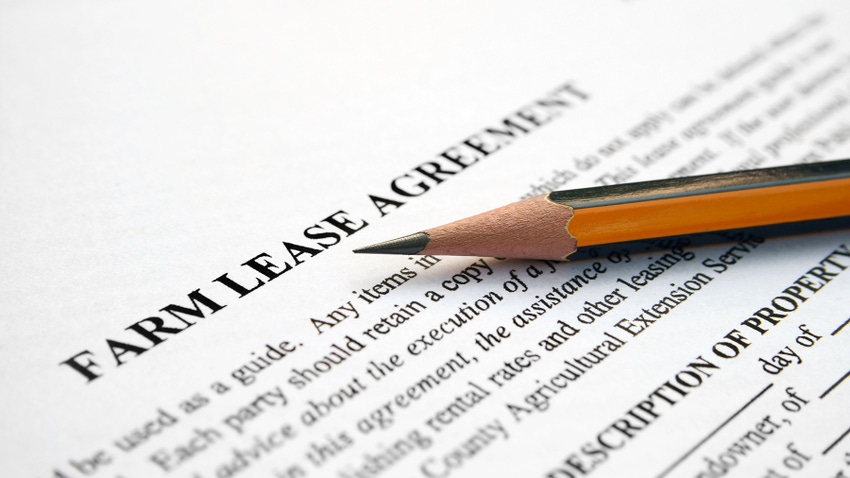
Lots of land is expected to change hands in coming years which will likely place greater emphasis on communication between landowners and farm tenants. This is why we believe it’s important to know and identify the important issues for your farm and be sure to communicate those to all parties of the lease.
Is that just common sense? You’d think so. But frankly, many farm leases don’t address these pressing issues. This was one of my takeaways from attending a law seminar sponsored by Iowa State University’s Center for Agricultural Law and Taxation. The director of the center, Kristine Tidgren, presided over a room full of legal and tax practitioners, farm managers, and other interested farm advisors, including me.
Let’s take conservation, for example. Kristine says most farm leases are silent when it comes to land conservation, yet there is a lot of buzz in the industry over sustainability, soil health, and regenerative farming practices.
Land ownership trends
Part of her message to rural practitioners is the hot topics in farm leases could change and evolve as more farms transition. This is likely why this year’s conference dedicated an entire session to farm leases.
The age of landowners is the oldest in history, and “only 13% of farmland is owned by those 55 years or younger!” – Kristine pointed out to the attendees. This is one of the estimates from the 2022 Iowa Farmland Ownership and Tenure survey. What will the land rental environment look like after the other 87% has transitioned to someone else?
Many believe the next generation will “cash in” and sell highly appreciated farmland, but the above survey would say this is an inaccurate perception. In fact, it found only 4% of farmland is intended to be sold, which means a large majority of it will be passed down by gift and inheritance. Only 38% of those surveyed say income is the most important reason for owning farmland. This is a significant decrease from just ten years ago.
Even though owning farmland is becoming more of a “real estate rental business” more and more say the most important factor for holding it is for family and sentimental reasons. Therefore, future landowners may have a different set of factors important to them than the generation before them.
So, what are the hot topics?
No matter whether your important issues are big or small, I believe it’s important to first know and understand what they are and then communicate them. Some of these, frankly, are common sense. The problem is a lot of farm leases are silent about them.
For example, as I write this article there are discussions occurring in the industry whether farmers and landowners need to be held accountable to do their part for soil health. Some even argue this is a must to qualify for federal subsidies and farm programs in the future. Technology and access to data from digital farming is another hot topic. Who owns this information and who does it belong to?
The important issues to you could be hot topics like these, or something as simple as receiving a phone call, a picture of the farm, or an end of year harvest summary.
Another hot topic could be the trends occurring with farm leases themselves. It used to be many farms were leased using a crop share arrangement. Now, 58% of farmland is leased with annual fixed rent leases. The concern is one-year rental contracts do not complement longer-term farm programs or conservation programs such as cover crops and carbon credit programs.
This could be one of the reasons variable cash rent leases are also trending higher. They contain both a fixed cash rent and profit-sharing component. These offer a modern-day alternative to the traditional crop share lease and may better support the ownership goals of the next generation.
A reading of your farm lease
We encourage you to know and understand what’s in your farm lease. Be careful, many times they are filled with legal jargon which must be re-read multiple times to understand. Unless communicated otherwise, the parties to the lease may not hold a lot of respect for these provisions if they don’t understand them. We compare it to those we work with in the estate planning process who elect to have a “reading of their will” with their family. For those who communicate their plan now, the family holds a greater respect for the transition plan versus having it read to them later in a language they don’t understand.
As more and more farms transition, better communication between landlords and tenants will become a pressing issue. Discuss and write down the important issues in layman’s terms all parties can understand. One of the future characteristics of strong landlord-tenant relationships is how well they communicate and understand the important issues to all parties of the lease.
Downey has been helping farmers and landowners for the last 23 years with their family farm transition, estate planning, leasing strategies, and general farm advising. He is the co-owner of Next Gen Ag Advocates and an associate of Farm Financial Strategies. Reach Mike at [email protected].
Read more about:
Land LeasesAbout the Author(s)
You May Also Like






